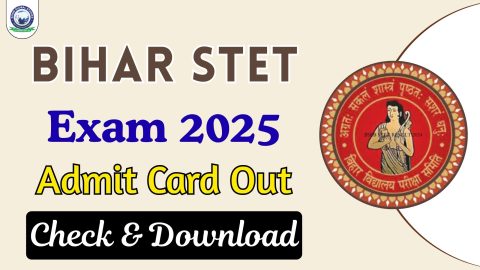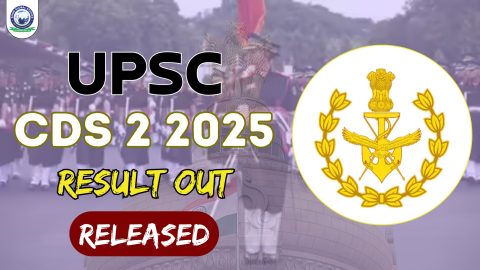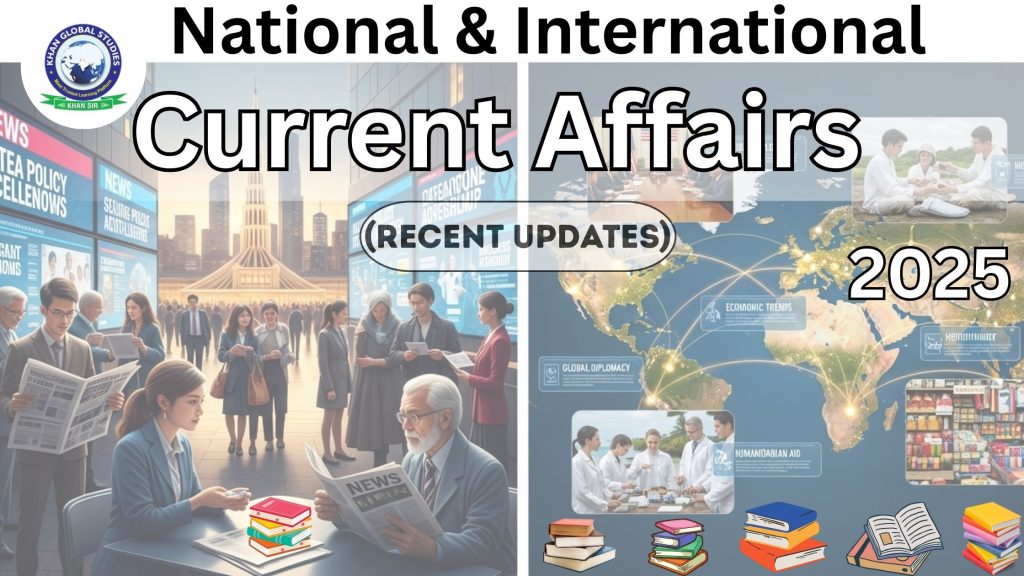Keeping up with current affairs has become more important than ever. Whether you’re preparing for competitive exams or simply want to stay informed about the world around you, understanding recent developments helps you make better decisions and participate meaningfully in discussions.
Current affairs cover everything from government policies and economic changes to international relations and social developments. These events shape our daily lives, influence job markets, and affect future opportunities. For students preparing for civil services or other competitive exams, staying current with national and international news isn’t just helpful, it’s essential.
This comprehensive guide will walk you through the most significant recent developments across various sectors. We’ll break down complex topics into simple, understandable points that anyone can follow. By the end of this post, you’ll have a clear picture of what’s happening in India and around the world.
Understanding Current Affairs: Why They Matter
Current affairs are simply the important events happening right now in politics, economics, society, and international relations. These events affect millions of people and often have long-lasting consequences.
For exam preparation, current affairs questions appear in almost every competitive test. UPSC, BPSC, MPPSC, and other state civil services regularly ask about recent developments. Banking exams, SSC tests, and even private sector interviews often include current affairs sections.
Beyond exams, staying informed helps you understand why certain policies are introduced, how global events affect local markets, and what trends might shape the future. It makes you a more aware citizen and better conversationalist.
Recent National Developments
Economic Policy Changes
The Indian government has introduced several new economic measures recently. Digital payment systems continue to expand, making transactions easier for everyone. The government is also focusing on manufacturing growth through various incentive schemes.
Small businesses are getting more support through simplified loan processes. This helps entrepreneurs start new ventures and create jobs. The focus on self-reliance has led to increased domestic production in many sectors.
Tax reforms have made compliance easier for both individuals and businesses. Online filing systems are more user-friendly, and processing times have improved significantly.
Infrastructure Projects
Major infrastructure developments are happening across the country. New highways connect remote areas to major cities, improving trade and travel. Railway modernisation projects are making train travel faster and more comfortable.
Airport expansions in tier-2 cities are boosting regional connectivity. This helps local economies grow and creates new opportunities for businesses and individuals.
Smart city initiatives are improving urban living conditions. Better waste management, improved public transport, and digital governance systems are making cities more liveable.
Social Welfare Schemes
Government welfare programmes continue to expand their reach. Direct benefit transfer systems ensure that subsidies reach the right people quickly. This reduces corruption and improves efficiency.
Healthcare initiatives are improving medical access in rural areas. Telemedicine services help people get expert advice without travelling to big cities. Medicine prices have become more affordable through various schemes.
Education reforms are making quality learning more accessible. Digital learning platforms help students in remote areas access the same resources as urban students.
International Affairs Update
Global Economic Trends
The world economy is facing several challenges and opportunities. Inflation rates in major economies are affecting global trade patterns. Supply chain disruptions continue to impact various industries.
Technology sector growth remains strong despite some uncertainties. Artificial intelligence and renewable energy sectors are attracting significant investments worldwide.
Trade relationships between major economies are evolving. New partnerships are forming while some traditional alliances face challenges.
Geopolitical Developments
International relations are constantly changing. Regional conflicts affect global stability and economic growth. Diplomatic efforts continue to address various international disputes.
Climate change discussions are gaining momentum at international forums. Countries are setting new targets for reducing carbon emissions and investing in clean energy.
Security concerns remain important for all nations. Cybersecurity threats are increasing, prompting countries to strengthen their digital defences.
Technological Advancements
Space exploration is reaching new milestones. Various countries are launching missions to explore other planets and improve satellite technology.
Medical breakthroughs are improving treatment options for many diseases. New vaccines and therapies are being developed rapidly.
Communication technology continues to evolve. Faster internet speeds and better connectivity are changing how people work and interact globally.
Sector-Wise Analysis
Agriculture and Rural Development
Farmers are getting better access to modern farming techniques. Government schemes provide subsidies for equipment and seeds. Weather forecasting systems help farmers plan their crops better.
Rural internet connectivity is improving rapidly. This helps farmers access market prices, weather information, and government services online.
Water conservation projects are helping areas facing drought. Efficient irrigation systems reduce water waste and improve crop yields.
Healthcare Sector
Medical infrastructure is expanding across the country. New hospitals and clinics are opening in underserved areas. Medical education is also getting more attention with new colleges being established.
Preventive healthcare programmes are reducing disease burden. Vaccination drives and health awareness campaigns are showing positive results.
Medical research is getting more government support. Indian companies are developing new medicines and medical devices.
Education Sector
Online learning platforms are becoming more popular. Students can access quality education from anywhere. This is particularly helpful for those in remote areas.
Skill development programmes are helping young people find better jobs. Technical training in emerging fields like data science and renewable energy is growing.
Higher education institutions are improving their global rankings. Research output from Indian universities is increasing steadily.
Key Takeaways for Competitive Exams
When preparing for competitive exams, focus on these important areas:
Political Developments: Keep track of major policy announcements, cabinet changes, and important government decisions. Understanding the reasoning behind policies helps answer analytical questions.
Economic Indicators: Follow GDP growth rates, inflation figures, and major economic reforms. These topics appear frequently in exams and interviews.
International Relations: Stay updated on India’s relationships with other countries, trade agreements, and participation in international organisations.
Science and Technology: Recent discoveries, space missions, and technological innovations are popular exam topics.
Sports and Culture: Major sporting events, cultural festivals, and achievements by Indian personalities often appear in general knowledge sections.
Environment and Climate: Environmental policies, climate change initiatives, and conservation efforts are increasingly important exam topics.
How to Stay Updated Effectively
Reading newspapers daily remains one of the best ways to stay informed. Focus on editorial sections to understand different perspectives on issues.
Online current affairs platforms provide structured information that’s easy to review. Many offer daily quizzes that help test your knowledge.
Monthly magazines compile important events, making revision easier. They often provide analysis that helps understand the broader impact of events.
Television news and documentary programmes offer visual learning opportunities. However, always verify information from multiple sources.
Social media can provide quick updates, but be careful about unverified information. Stick to reliable news sources and fact-checking websites.
Preparing for Different Types of Exams
Civil Services Preparation: Focus on policy analysis and long-term implications of current events. Understanding different viewpoints on issues is crucial.
Banking Exams: Emphasise economic developments, monetary policy changes, and financial sector updates.
State PSC Exams: Pay special attention to state-specific developments while maintaining awareness of national issues.
Defence Exams: Focus on security-related developments, defence technology, and international military cooperation.
Teaching Exams: Educational policies, new teaching methods, and academic research developments are important.
Common Mistakes to Avoid
Don’t just memorise facts without understanding their context. Exam questions often test analytical thinking rather than just recall.
Avoid focusing only on political news while ignoring economic, social, and international developments. Balanced preparation is essential.
Don’t rely on single sources for information. Cross-verify important news from multiple reliable sources.
Avoid cramming current affairs at the last minute. Regular reading and review are more effective than intensive last-minute preparation.
Don’t ignore local and state-level developments if you’re preparing for state exams. These often carry significant weightage.
Building Your Knowledge Foundation
Start with basic understanding of government structure, economic concepts, and international relations. This foundation helps you better understand current events.
Create connections between different pieces of news. Understanding how various events relate to each other improves your analytical ability.
Practice explaining current events in your own words. This helps ensure you truly understand the topics rather than just remembering them.
Regular revision prevents information overload and helps retain important details. Create summary notes for quick review.
Looking Ahead: Staying Prepared
Current affairs preparation is an ongoing process. Set aside specific time daily for reading and note-making. Consistency is more important than intensity.
Join study groups or online forums where you can discuss current events with others. Different perspectives help broaden your understanding.
Take regular mock tests that include current affairs sections. This helps identify areas where you need more focus.
Stay curious about the world around you. Developing genuine interest in current events makes preparation more enjoyable and effective.
Remember that current affairs knowledge helps beyond just exams. It makes you a more informed citizen and better participant in democratic processes.
The key to success lies in regular practice, critical thinking, and maintaining genuine interest in the world around you. Start today, stay consistent, and watch your knowledge and confidence grow steadily.




